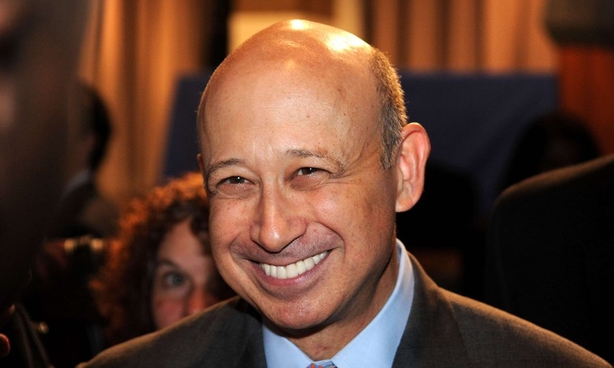Goldman Sachs Group today reported a nearly four-fold rise in quarterly profit as it benefited, like other big banks, from a surge in trading after Donald Trump's surprise win in November's presidential election.
Goldman's net income soared to $2.15 billion in the fourth quarter ended December 31 from $574m a year ago, when the Wall Street bank was hit with a $5 billion legal settlement.
Earnings per share jumped to $5.08 from $1.27.
On an adjusted basis, the bank earned $5.08 per share, beating the average analysts' estimate of $4.82, according to Thomson Reuters.
Goldman's revenue from trading fixed-income securities, currencies and commodities shot up 78.3% to $2 billion.
Morgan Stanley, Goldman's closest rival, said yesterday that revenue from its fixed-income trading jumped about 173% in the latest quarter.
While Goldman typically relies more on trading than its competitors, the bank has been trying to shift its model over the last few years to rely less on the business and more on stable markets such as investment management.
The bank has also made a push into consumer lending, launching an online platform called Marcus late last year.
Goldman's total net revenue jumped 12.3% to $8.17 billion, beating the average estimate of $7.72 billion.
"After a challenging first half, the firm performed well for the remainder of the year as the operating environment improved," the bank's chief executive and chairman Lloyd Blankfein said.

Goldman's shares have risen about 30% since the election.
Bank stocks soared in the aftermath of Trump's win as investors took he view that his policies would lead to a stronger US economy and less-stringent banking regulation.
Goldman, which said in 2016 that it had launched a programme to cut $700m in annual costs, said its operating expenses dropped 23% to $4.77 billion in the latest quarter.
Full-year expenses fell 18.9% to $20.30 billion, the lowest since 2008, the bank said.
Annualised return-on-equity - a measure that shows how well a bank uses shareholder money to generate profit - was 11.4% in the quarter, above the 10% that analysts tend to think is needed to cover a bank's cost of capital.
Investment banking revenue, which includes income from advising on mergers and acquisitions as well as underwriting bond and share offerings, fell 3.9% to $1.49 billion.
The bank maintained its position as the world's biggest M&A adviser in 2016 with a 35.9% market share of completed deals, according to Thomson Reuters data, ahead of Morgan Stanley and JPMorgan Chase & Co.
Revenue from investment management rose 3.4% to $1.61 billion in the three month period.

